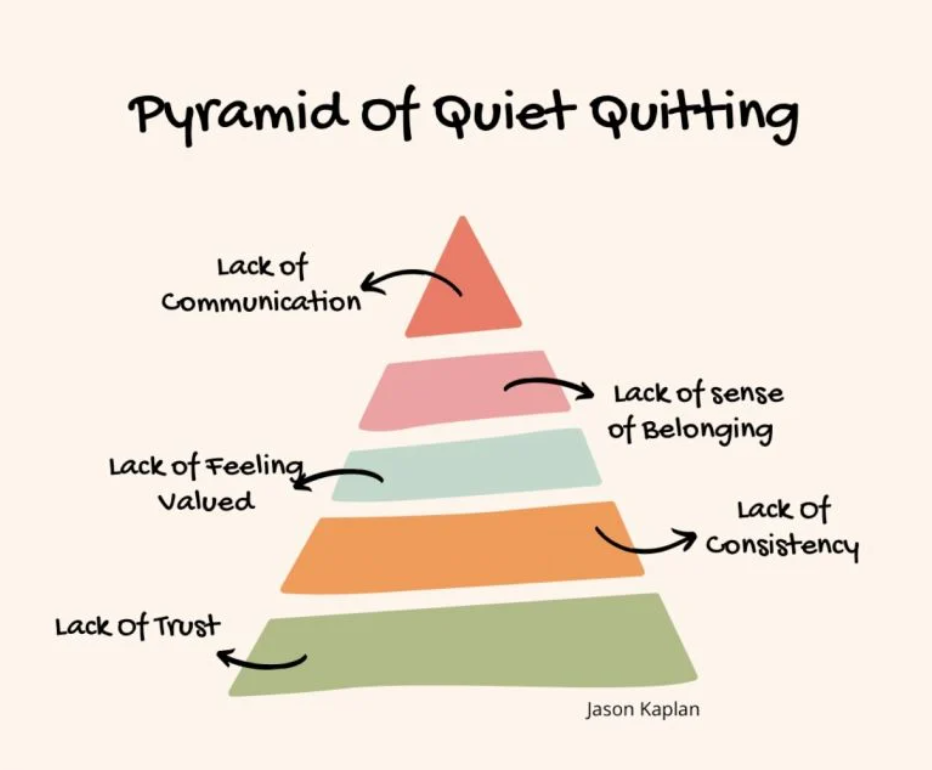 |
| Pyramid of Quiet Quitting |
When an employee suddenly leaves our work chat groups for no reason, I asked if she was ok and she simply said "I'm ok, but there are just too many chat groups." then she laid low on work activities, not exerting much effort or engaging co-workers in improving the system.
When I searched Google Generative AI about this, I discovered a new term called quiet quitting.
QUIET QUITTING refers to employees disengaging from their work by doing the bare minimum to maintain their jobs, without explicitly resigning, and often as a sign of dissatisfaction or burnout. This can lead to decreased productivity, reduced innovation, and a decline in employee morale. Signs of quiet quitting include not volunteering for extra projects or leadership roles, limited participation in meetings or team discussions, refusing to take on tasks outside of the job description, arriving late or leaving early, focusing on the minimum required to keep the job. Quiet quitting can be addressed by improving employee engagement and morale, providing opportunities for growth and development, encouraging open communication and feedback, addressing burnout and stress.
Heather Whitney writes in her blog Quiet Quitting: Meaning, Signs, and How to Prevent it that in a survey they conducted, the majority of quiet quitters said their manager affects their work ethic (57%), as does their mental health (55%) and compensation (51%).
Gray Towers says that quiet quitting offers both opportunities and threats for talent acquisition teams. "their loss is our gain" if quiet quitters are enticed to apply in your company. However, if the reasons for quiet quitting still pervades in the work place, these quiet quitters can be the reason to need recruiting in the first place. Bottom line is that employers should have a good employee engagement program.
T1. How do you understand the concept of "quiet quitting" in healthcare workforce?T2. How do you think the concept of quiet quitting affects work-life balance and healthcare service delivery?
T3. What factors do you think impact work ethics of healthcare professionals?




No comments:
Post a Comment